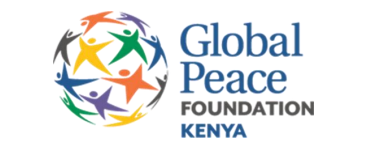The 2017 Global Peace Convention gathered leaders from 40 countries representing governments, faith institutions, businesses and civil society organizations in Manila, the Philippines on February 28 to advance a common vision for peace and shared prosperity through the theme, “Moral and Innovative Leadership: New Models for Peace and Development.” Hosted by the Global Peace Foundation (GPF) the convention proceedings included inspirational sessions on Interfaith Peacebuilding, Korean Unification, Transforming Education, Youth Leadership and Service, Women’s Leadership Culture, and Global Peace Business and Economy.
In his welcoming remarks at opening plenary, GPF International President, Mr. James Flynn noted that the convention would focus on global, regional and local issues, guided by the need for moral and innovative leadership in public affairs and civic life. He called for a shared commitment to develop strategies for resolving the critical divisions and persistent poverty and underdevelopment that afflict much of the human family.
The conference was pampered with motivating speeches by former Philippine President Gloria Arroyo and former Guatemala President Vincio Cerezo who both served as co-chairs of the international Host Committee.
Delivering the keynote address, Global Peace Foundation Founder and Chairman Dr. Hyun Jin Preston Moon emphasized the growing influence and economic dynamism of the Pacific Rim and Southeast Asia, and more broadly the importance of the southern hemisphere in the twenty-first century.
Calling the Philippines, “my second home in Asia,” and reminding the assembly that Manila hosted GPF’s first Global Peace Convention in 2009, he movingly paid tribute to the Philippines national motto: Maka-Diyos, maka-tao, maka-kalikasan, at maka-bansa, “For the love of God, people, nature and country.”
Recognizing that such an uplifting ideal did not well describe contemporary world affairs, Dr. Moon said that the convention theme, “Moral and Innovative Leadership: New Models for Peace and Development” was timely and relevant not only in the context of the United Nations campaign to achieve the Sustainable Development Goals by 2030 but in the human quest “for genuine peace based on liberty, individual rights and just governance.”
“The year 2016 was certainly one of considerable turmoil, challenge and change,” the GPF chairman said.
“Failed top down models and the status quo are giving way to the rise of populist movements that champion the concerns of those who feel left out or overrun in rapidly changing social landscapes.
“We urgently need a unifying vision; we need to recognize the vital importance of the self-evident, transcendent truths that define our common humanity; and we need to build consensus around shared values to undergird the creation of vibrant, prosperous, ethical societies.
Dr. Moon then presented the case of the divided Korean peninsula, and the threat the division posed not only to the South, but to Asia and the world. Referencing his recent book Korean Dream, he cited three major prerequisites to realizing the dream of one united Korea.
- First, shared vision based on universal principles, specifically the historic ethic familiar to all Koreans, called Hongik Ingan.
- Second, the extended family as a fundamental institution providing order, stability and continuity in human relations.
- And third, a welcoming spiritual environment, which he credited to Korean society and heritage, enabling Koreans to invite and adopt all the major religious traditions from around the world. Significantly, he added, “religion was not separate from governance but, instead, informed it.”
He also observed that a bottom-up approach which tapped into the self-reliant spirit and community resilience of the Korean people to building national identity, was essential to South Korea’s rise from abject poverty after the Korean War. “Civil society organizations can serve as important catalysts for change,” he noted, adding that technology and social media could ignite the spark of freedom in repressive societies like North Korea.
Thanking the many grass roots leaders who have invested in community impact programs, Dr. Moon concluded, “This seventh Global Peace Convention reflects the most promising models of peace and development forging a greater force for good that can transform the thunderclouds of warring tensions around us to a new era uplifting our common humanity. Let us unleash this renaissance of character, service, enterprise, scholarship and peace for the good of our world.”
Video: GPF Chairman Key Note Address
